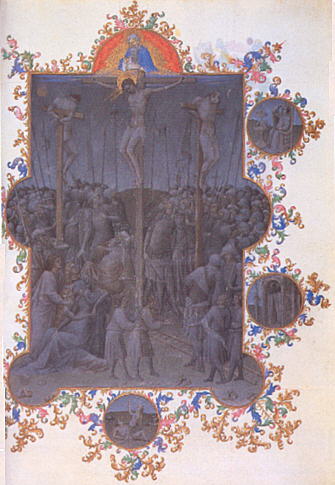|
The Thallus question is totally inconclusive. One obscure author, Thallus, quoted (accurately or selectively and with interpretation) by another obscure author, Africanus, who is then quoted by Eusebius, the 3rd or 4th century church historian who admitted he only recorded things which would add glory to the church, and not publish things that might detract from that glory. Thatʼs how we know of Thallus and Africanus, from Eusebius. Exactly what Thallus originally said or was referring to is anyoneʼs guess.
If such a miracle as darkness over all the earth for several hours happened, it appears that Markʼs Gospel recorded it first and it was simply copied verbatim by the other two Gospel writers who copied most of their Gospels from Mark. (over 99% of Mark appears in Matthew and Luke, often the exact same phrases Mark used, while the reverse percentage is only about 60%)
Equally curious is the fact that Lukeʼs re-wording of that miracle might limit the extent of the darkness to less than the whole earth.
So we are left with one “witness,” in the Gospel of Mark, a Gospel that was not even written by an apostle or eyewitness at all, and the other two Gospelers simply copied that miracle tale from Mark, and the only other reference, which Eusebius dug up, is to one obscure reference to an obscure author made by another obscure author, Africanus. It thatʼs what the “truth” of the Gospel is based on, then it simply cannot be believed to be true by anyone who is the least bit skeptical today.
You can also read several articles on the Thallus question at the Secular Web,
For instance,
G. A. Wells has mentioned it often in recent articles at the Secular Web, and in his last two books.
Anyone can see that there is no sure way to demonstrate any such miracle at all.
Indeed, as Thomas Paine once pointed out, surely darkness covering the whole earth for several hours was a huge miracle that only God could perform and only God could have prophesied, yet where is the prophesy of such a thing? Instead we have the so-called prophecy that Jesusʼ garments would be parted. How unimpressive.
And the miracles that accompanied Jesusʼ death and resurrection, besides the “darkness” were the earthquakes (which only Matthew mentions, and he says there were TWO of them, how did the other evangelists miss two whole earthquakes strong enough to open tombs of rock? Of course it Mark had mentioned it then Luke probably would have just copied an earthquake miracle tale from Mark, but because Mark didnʼt mention it, Luke had no earthquake story to copy and told none; and Matthew invented his earthquake story to “open the tombs of the many saints” so that they might “rise from the dead and parade through the holy city,” which is again, a miracle that only Matthew invented. Indeed, comparing all the words that come before and after the “rising of the many saints,” anyone can see that Matthew has copied word for word all the words of Mark up till the earthquake and opening of the tombs, and copied all the words of Mark after those events; events which Mark and hence, Luke, wrote nothing).
All in all, the miracles accompanying Jesusʼ death and resurrection rest on as shakey a ground as Matthewʼs lone tale of the two miraculously timed earthquakes, one to open the tombs of the many saints, and the other to accompany Jesusʼ resurrection.
But of course, check out the many other ancient tales of miracles accompanying peopleʼs deaths in the ancient world. Darkening of the sky was common.
Best, Ed



No comments:
Post a Comment